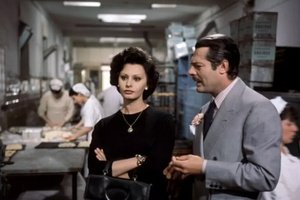The move by Giuseppe Conte, who is attending his first European Union summit, surprised other leaders and forced summit chairman Donald Tusk and European Commission President Jean-Claude Juncker to cancel a news conference planned for Thursday evening.
“As one member reserved their position on the entire conclusions, no conclusions have been agreed at this stage,” a spokesman for Tusk said.
Conte, the head of a new euroskeptic government that includes the anti-establishment Five Star Movement (M5S) and the far-right League, is demanding that other EU states share the costs and burden of handling migrants that are rescued in the Mediterranean.
His move came after leaders held talks on a range of issues from security and defense, to jobs, growth and competitiveness.
Normally, they would issue pre-prepared conclusions once that discussion was over.
But Conte’s intervention, ahead of a dinner where the controversial migration issue is due to be discussed, prevented that.
“We are still hoping that Conte felt compelled to stir up a mess and at the end of the day he will get back in line, but it’s far from certain,” an EU diplomat said.
A horrible signal
If unresolved, the row would send a horrible signal about the EU’s unity at a time when the bloc is being assailed by US President Donald Trump on trade and struggling to deal with the legacy of its 2015 crisis, which saw more than a million refugees and migrants enter Europe.
It is especially dangerous for German Chancellor Angela Merkel, the EU’s longest serving leader, who is under intense pressure from her conservative allies in Bavaria to deliver a deal on migration in Brussels.
If she fails, the Christian Social Union (CSU) has threatened to unilaterally close their border to migrants.
That could trigger the collapse of Merkel’s three-month-old government and cause the EU’s Schengen free travel zone to unravel, putting cross-border business, trade and many jobs among the EU’s 500 million citizens at risk.
“Europe faces many challenges, but that of migration could become the make-or-break one for the EU,” Merkel said in a speech to parliament before traveling to Brussels.
Her 2015 decision to open Germany’s borders to over a million refugees has divided Europe and continues to haunt her at home even though arrivals have dropped sharply.
Fewer than 45,000 migrants have made it to the European Union this year, according to United Nations data.
A thousand more have perished trying to cross the Mediterranean.
According to draft conclusions circulated before the two-day summit, the leaders planned to agree measures to strengthen Europe’s external borders, spend more on fighting illegal immigration and step up cooperation to prevent refugees and migrants from moving within the bloc.
They were due to give more money for Syrian refugees in Turkey and migration projects in Africa, as well as look at sealing a deal with Morocco to reverse a recent uptick in arrivals in Spain.
But the EU remains deeply divided over how to handle asylum seekers, with the ex-communist easterners led by Poland and Hungary refusing to accept a share of the new arrivals to alleviate the burden on Italy and Greece, struggling to cope.
A migration deal among all 28 EU states is unrealistic, so Merkel is pushing for a “coalition of the willing” on migration.
She hopes that will appease the CSU, which has hardened its line before an autumn election in its home region of Bavaria, the main German entry point for migrants.
Convincing Italy to do a deal may be the biggest challenge.
Conte has rejected any moves that would make it handle more even more people.
Currently most of those picked up by rescue boats in the Mediterranean disembark in Italy.
But Rome has in recent days refused to let in two such boats with hundreds of people aboard as Conte wants other coastal countries to take some of them in as well.












